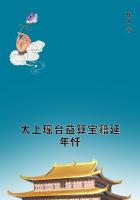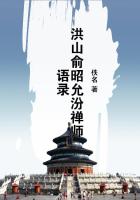Thus Feudalism arose in the ninth and tenth centuries from the absolute wreck of property and hopes. It was virtually the surrender of land for the promise of protection. It was the great necessity of that anarchical age. Like all institutions, it grew out of the needs of the times. Yet its universal acceptance seems to prove that the change was beneficial. Feudalism, especially in its early ages, is not to be judged by the institutions of our times, any more than is the enormous growth of spiritual power which took place when this social and political revolution was going on. Wars and devastations and untold calamities and brutal forces were the natural sequence of barbaric invasions, and of the progressive fall of the old civilization, continued from generation to generation for a period of two or three hundred years, with scarcely any interruption. You get no relief from such a dispensation of Divine Providence, unless you can solve the question why the Roman Empire was permitted to be swept away. If it must be destroyed, from the prevalence of the same vices which have uniformly undermined all empires,--utter and unspeakable rottenness and depravity,--in spite of Christianity, whether nominal or real; if eternal justice must bear sway on this earth, bringing its fearful retributions for the abuse of privileges and general wickedness,--then we accept the natural effects of that violence which consummated the ruin. The natural consequences of two hundred years of pillage and warfare and destruction of ancient institutions were, and could have been nothing other than, miseries, misrule, sufferings, poverty, insecurity, and despair. Auniversal conflagration must destroy everything that past ages had valued. As a relief from what was felt to be intolerable, and by men who were brutal, ignorant, superstitious, and degraded, all from the effect of the necessary evils which war creates, a sort of semi-slavery was felt to be preferable, as the price of dependence and protection.
Dependence and protection are the elemental principles of Feudalism. These were the hard necessities which the age demanded.
And for three hundred years, it cannot be doubted, the relation between master and serf was beneficial. It resulted in a more peaceful state of society,--not free from great evils, but still a healthful change from the disorders of the preceding epoch. The peasant could cultivate his land comparatively free from molestation. He was still poor. Sometimes he was exposed to heavy exactions. He was bound to give a portion of the profits of his land to his lordly proprietor; and he was bound to render services in war. But, as he was not bound to serve over forty days, he was not led on distant expeditions; he was not carried far from home.
He was not exposed to the ambition of military leaders. His warlike services seem to be confined to the protection of his master's castle and family, or to the assault of some neighboring castle. He was simply made to participate in baronial quarrels;and as these quarrels were frequent, his life was not altogether peaceful.
But war on a large scale was impossible in the feudal age. The military glory of the Roman conquerors was unknown, and also that of modern European monarchs. The peasant was bound to serve under the banner of a military chieftain only for a short time: then he returned to his farm. His great military weapon was the bow,--the weapon of semi-barbarians. The spear, the sword, the battle-axe were the weapons of the baronial family,--the weapons of knights, who fought on horseback, cased in defensive armor. The peasant fought on foot; and as the tactics of ancient warfare were inapplicable, and those of modern warfare unknown, the strength of armies was in cavalry and not in the infantry, as in modern times.
But armies were not large from the ninth to the twelfth century,--not until the Crusades arose. Nor were they subject to a rigid discipline. They were simply an armed rabble. They were more like militia than regular forces; they fostered military virtues, without the demoralization of standing armies. In the feudal age there were no standing armies. Even at so late a period as the time of Queen Elizabeth that sovereign had to depend on the militia for the defence of the realm against the Spaniards. Standing armies are the invention of great military monarchs or a great military State. The bow and arrow were used equally to shoot men and shoot deer; but they rarely penetrated the armor of knights, or their force was broken by the heavy shield: they took effect only on the undefended bodies of the peasantry. Hence there was a great disproportion of the slain in battle between peasants and their mounted masters. War, even when confined to a small sphere, has its terrors. The sufferers were the common people, whose lives were not held of much account. History largely confines itself to battles. Hence we are apt to lose sight of the uneventful life of the people in quiet times.
But the barons were not always fighting. In the intervals of war the peasant enjoyed the rude pleasures of his home. He grew up with strong attachments, having no desire to migrate or travel.
Gradually the sentiment of loyalty was born,--loyalty to his master and to his country. His life was rough, but earnest. He had great simplicity of character. He became honest, industrious, and frugal. He was contented with but few pleasures,--rural fetes and village holidays. He had no luxuries and no craving for them.
Measured by our modern scale of pleasures he led a very inglorious, unambitious, and rude life.















